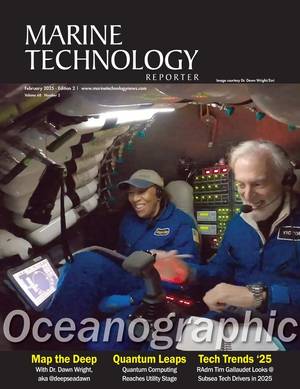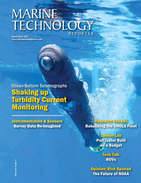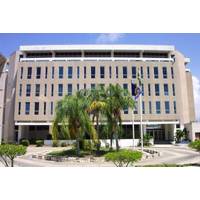
International Seabed Authority Responds to Trump Plan
The International Seabed Authority has issued a statement following the announcement that deep-sea mining firm The Metals Co has asked the Trump administration to approve its plans to mine the international seabed.This would make it the first such company to seek the government's permission to operate outside U.S. territorial waters, and it comes after a US Executive order “Unleashing America’s Offshore Critical Minerals and Resources” which was issued on April 24.Leticia Reis de Carvalho Secretary-General of the International Seabed Authority, said: “The issuance of an
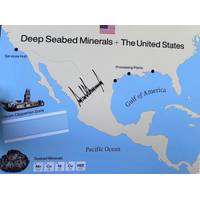
First Deep-Sea Mining Company Asks Trump for International Permit
Deep-sea mining firm The Metals Co asked the Trump administration on Tuesday to approve its plans to mine the international seabed, making it the first such company to seek the government's permission to operate outside U.S. territorial waters.Last week President Donald Trump signed an order aiming to jumpstart mining in both domestic and international waters in an attempt to boost U.S. access to critical minerals and reduce China's market control.The move ratchets up tension between Washington and the United Nations-backed International Seabed Authority, which has been crafting mining standards
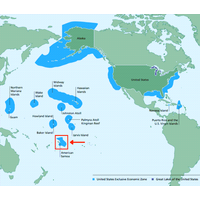
Impossible Metals Seeks Mining Lease Near American Samoa
large claw that uses artificial intelligence to distinguish between nodules and aquatic life.Any country can allow deep-sea mining in its own territorial waters, roughly up to 200 nautical miles from shore.That means that California-based Impossible Metals does not need permission from the International Seabed Authority (ISA) - created by the United Nations Convention on the Law of the Sea, which the U.S. has not ratified.The White House is weighing an executive order to let mining companies that want to mine international waters bypass the ISA.(Reuters - Reporting by Ernest Scheyder; Editing by Sandra Maler
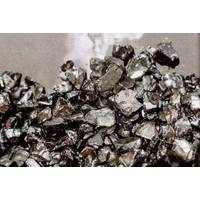
China Concerned About US Deep-Sea Metals Stockpile Plan
No country should bypass international laws to authorise resource exploration in the seabed, China's foreign ministry said on Monday, following a report of U.S. plans to stockpile deep-sea metals to counter China's dominance in the sector.The Trump administration is drafting an executive order to enable stockpiling of deep-sea metals found on the Pacific Ocean seabed to counter China's dominance of battery minerals and rare earth supply chains, the Financial Times reported on Saturday, citing people familiar with the matter.The stockpile would "create large quantities ready and
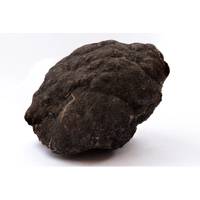
Trump Plans to Stockpile Deep Sea Metals
The Trump administration is drafting an executive order to enable the stockpiling of metals found on the Pacific Ocean seabed to counter China's dominance in battery minerals and rare earth supply chains, The Financial Times reported on Saturday, citing people familiar with the matter.(Reuters - Reporting by Rajveer Singh Pardesi in Bengaluru; Editing by Mark Potter)
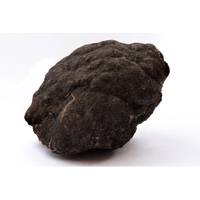
White House Could Bypass UN on Deep-Sea Mining
Donald Trump's latest attempt to tap international deposits of nickel, copper and other critical minerals used widely across the economy after recent efforts in Greenland and Ukraine. Trump earlier this month also invoked emergency powers to boost domestic minerals production.The International Seabed Authority - created by the United Nations Convention on the Law of the Sea, which the U.S. has not ratified - has for years been considering standards for deep-sea mining in international waters, although it has yet to formalize them due to unresolved differences over acceptable levels of dust, noise
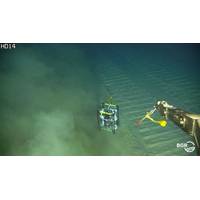
Deep-Sea Mining Test Caused Distant Sediment Change
redeposited layer reached a thickness of about three centimeters, completely covering the nodule habitat in the close vicinity (up to ~100m distance), and thinning out with increasing distance from the mining area.MiningImpact researchers are continuing their analysis of the environmental impacts of seabed mining.
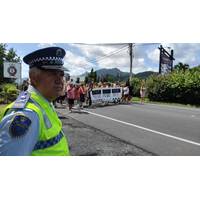
Cook Islands Deal with China on Seabed Mining Spurs Protest
Zealand, the self-governing Cook Islands can interact with the international community as an independent state.The neighbours have committed to consulting on security, defence and foreign relations. New Zealand also provides some budget support and commits to defend the people, who are its citizens.Seabed mining, hydrography, disaster relief and cultural ties are areas the pact earmarks for cooperation.It does not explicitly mention security, but the prospect of greater maritime cooperation could fuel concern over potential military use of information and marine infrastructure.While New Zealand has previously
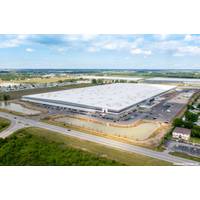
First Solar Bars Use of Deep-Sea Minerals
of the agreement provided to Reuters by advocacy group As You Sow. In return, the group withdrew a shareholder resolution calling for a moratorium on such minerals.The step is hardly revolutionary: other companies and governments have made similar commitments on worries that the quest to exploit the seabed for rare metals like those used for electric vehicle batteries could damage the ocean's ecosystem.But it could encourage shareholders worried about the backlash against environmental, social and governance (ESG) investment considerations from the Trump Administration and other Republican U.S
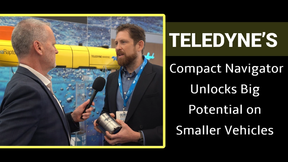
 February 2025
February 2025
